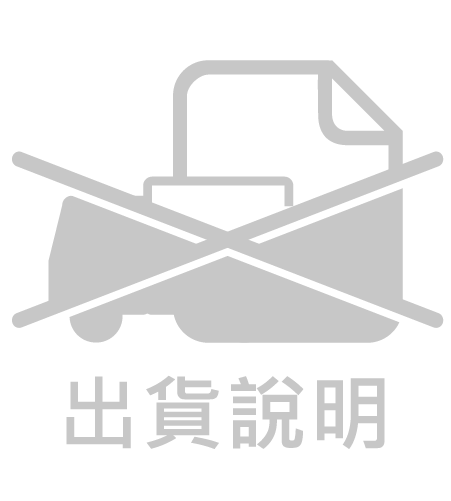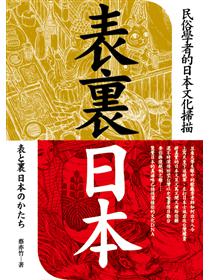 1收藏
1收藏

 1二手徵求有驚喜
1二手徵求有驚喜
定價:NT$ 677
優惠價: 93 折, NT$ 630
運送方式:超商取貨、宅配取貨
銷售地區:全球
訂購後,立即為您進貨



This catalogue is published to coincide with the UMAG exhibition North Korea’s Public Face: 20th-century Propaganda Posters from the Zellweger Collection.
For most people outside of the Democratic People’s Republic of Korea (DPRK), it may come as a revelation that art is available in North Korea, or that it is a well-developed feature of national culture. As the state guides artistic production, all artists are members of the Korean Artists Federation, and must create a certain number of works each month to receive a salary.
Although the category of ‘Propaganda Artist’ is a lower-ranking designation than ‘People’s Artist’, the propaganda artists are given the vital task of keeping the population informed. Posters first came to prominence during the 1950–53 Korean War and they are still displayed prominently throughout the capital and countryside. Slogans are often taken from statements made by the country’s leadership and from newspaper editorials.
North Korean posters portray a wide variety of topics: from phrases reinforcing party policies to messages reiterating campaigns on culture, public health, education and sports. Works presented in this exhibition primarily illustrate topics related to agricultural development and food production—areas of particular interest based on the years that Katharina Zellweger has addressed food and food security-related issues.
作者簡介:
Katharina Zellweger is a Research Fellow at Stanford University. She first visited North Korea in 1995, as the country was devastated by floods that contributed to a massive famine. As an employee of Caritas, the global Catholic organisation, she was among the first international aid workers on the ground. In the following years, she has made more than fifty trips and visited almost all of the country’s provinces, including the hardest-hit areas usually off-limits to foreigners. In 2006, she was offered a position as country director for the Swiss Agency for Development and Cooperation in Pyongyang. For the next five years, she lived in the North Korean capital and oversaw a series of projects. Her five-year tenure in Pyongyang coincided with a period in which North Korea gradually began to experiment with elements of economic reform, including private plots for farmers to grow and sell crops on the open market and the introduction of an incentive system to boost production.
退換貨說明:
會員均享有10天的商品猶豫期(含例假日)。若您欲辦理退換貨,請於取得該商品10日內寄回。
辦理退換貨時,請保持商品全新狀態與完整包裝(商品本身、贈品、贈票、附件、內外包裝、保證書、隨貨文件等)一併寄回。若退回商品無法回復原狀者,可能影響退換貨權利之行使或須負擔部分費用。
訂購本商品前請務必詳閱退換貨原則。 1收藏
1收藏

 1二手徵求有驚喜
1二手徵求有驚喜
優惠價: 93 折, NT$ 630 NT$ 677
運送方式:超商取貨、宅配取貨
銷售地區:全球
訂購後,立即為您進貨
This catalogue is published to coincide with the UMAG exhibition North Korea’s Public Face: 20th-century Propaganda Posters from the Zellweger Collection.
For most people outside of the Democratic People’s Republic of Korea (DPRK), it may come as a revelation that art is available in North Korea, or that it is a well-developed feature of national culture. As the state guides artistic production, all artists are members of the Korean Artists Federation, and must create a certain number of works each month to receive a salary.
Although the category of ‘Propaganda Artist’ is a lower-ranking designation than ‘People’s Artist’, the propaganda artists are given the vital task of keeping the population informed. Posters first came to prominence during the 1950–53 Korean War and they are still displayed prominently throughout the capital and countryside. Slogans are often taken from statements made by the country’s leadership and from newspaper editorials.
North Korean posters portray a wide variety of topics: from phrases reinforcing party policies to messages reiterating campaigns on culture, public health, education and sports. Works presented in this exhibition primarily illustrate topics related to agricultural development and food production—areas of particular interest based on the years that Katharina Zellweger has addressed food and food security-related issues.
作者簡介:
Katharina Zellweger is a Research Fellow at Stanford University. She first visited North Korea in 1995, as the country was devastated by floods that contributed to a massive famine. As an employee of Caritas, the global Catholic organisation, she was among the first international aid workers on the ground. In the following years, she has made more than fifty trips and visited almost all of the country’s provinces, including the hardest-hit areas usually off-limits to foreigners. In 2006, she was offered a position as country director for the Swiss Agency for Development and Cooperation in Pyongyang. For the next five years, she lived in the North Korean capital and oversaw a series of projects. Her five-year tenure in Pyongyang coincided with a period in which North Korea gradually began to experiment with elements of economic reform, including private plots for farmers to grow and sell crops on the open market and the introduction of an incentive system to boost production.
退換貨說明:
會員均享有10天的商品猶豫期(含例假日)。若您欲辦理退換貨,請於取得該商品10日內寄回。
辦理退換貨時,請保持商品全新狀態與完整包裝(商品本身、贈品、贈票、附件、內外包裝、保證書、隨貨文件等)一併寄回。若退回商品無法回復原狀者,可能影響退換貨權利之行使或須負擔部分費用。
訂購本商品前請務必詳閱退換貨原則。
※ 二手徵求後,有綁定line通知的讀者,
該二手書結帳減5元。(減5元可累加)
請在手機上開啟Line應用程式,點選搜尋欄位旁的掃描圖示
即可掃描此ORcode
|
||||||||||||||||||
|
||||||||||||||||||
|
||||||||||||||||||













